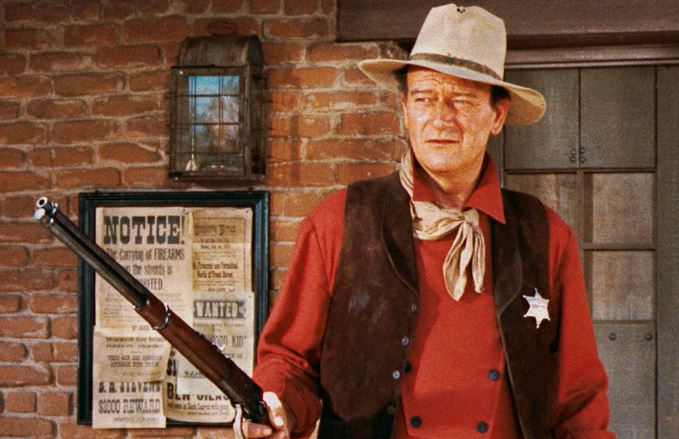During his storied career, John Wayne became synonymous with one titanic director who helmed him in several of his greatest pictures. When ‘The Duke’ acted for John Ford, their collaboration gave the world beloved classics like Stagecoach, The Man Who Shot Liberty Valance, Rio Grande, and The Quiet Man. However, there was another director to whom Wayne was also a devotee, and outside of Ford, was by far and away his favourite filmmaker to work for. Interestingly, he once revealed that the two men’s directing styles couldn’t have been more different, but both yielded incredible results.
In 1975, Wayne was winding down his long career in Hollywood, and he appeared at the Academy Awards to present his second favourite director with an Honorary Award for his incredible contributions to cinema. “I’m here to give an Honorary Award to a motion picture director,” Wayne’s barnstorming speech began. “Now, actors hate directors. They hate them because when actors have given their everything, directors want more. Boy, how they hate that.”

Wayne’s tongue-in-cheek rant then took a turn for the positive when he gushed about how it all becomes worth it when these precious actors “see themselves up there in scratchy old black-and-white…or glorious Technicolor and 20 feet high, better than they ever thought they could be. Doing things that they never thought they could do.” At this point, when an actor sees the fruits of the director’s labour, “They don’t hate the director. They love them. That’s how I feel about this man – Howard Hawks.”
To movie lovers today, Hawks is primarily known as a great western director, and those are the kinds of films he made with Wayne. They collaborated on five movies – Red River, Rio Bravo, Hatari!, El Dorado, and Rio Lobo – and a couple of them are still talked about in hushed tones among cinephiles. However, Hawks didn’t just make westerns – far from it, in fact.
One of Hawks’ primary Hollywood disciples is John Carpenter, who once said he “studied the plumbing” of his films to understand how he was such a master in a wide variety of genres. “I fell in love with his work because he’s so versatile,” Carpenter told MTV. “He did adventures, and The Thing from Another World. He did cowboy movies, comedies. I mean, he did all sorts of things.” Interestingly, Carpenter was adamant that he always believed Hawks was the best director in the game, even in film school when most of his contemporaries were worshipping at the altar of Ford.
While Carpenter may be Hollywood’s biggest Hawks fan, though, Wayne had firsthand experience of working with the man. He loved how Hawks dealt with actors and approached each day of shooting, which was the polar opposite of the tactics used by Ford, who he nicknamed ‘Pappy’.
“He gave actors the feeling that they were really a creative part of the process in any scene,” Wayne gushed. “He let actors come up with ideas, then he’d go away and write them into the script.” This wasn’t Ford’s way of working at all, with Wayne admitting, “Pappy would never have allowed that.”
In some ways, Hawks’ style sounds considerably more modern than Ford’s, even though he also worked from the silent era onwards. For example, Wayne claimed Hawks was a fan of naturalism and improvisation, which wasn’t the done thing in the Old Hollywood era. “Howard would sometimes give an actor lines without telling the other actors in the scene, and that way, he got actors to respond naturally,” Wayne explained. “He liked spontaneity. He never had anything written in stone.”
In truth, Hawks’ moviemaking philosophy – and his sense of humour – can be perfectly summed up by a hilarious Wayne anecdote. He claimed the director once told him, “Duke, if you can make three good scenes in this picture without annoying the audience, you’ll be okay for the rest of the time.” Naturally, this advice would roll back and forth in Wayne’s head before they shot certain scenes. So, from time to time, Wayne would ask him, “Is this one of those scenes?” to which Hawks would quip, “This is a scene where you get it over with as quickly as you can and don’t annoy the audience.”
